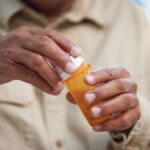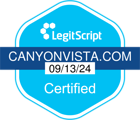For many who navigate the path of addiction recovery, relapse is not an indicator of failure or defeat, but a part of the journey toward healing. It is a bump in the road that you can overcome.
Understanding Relapse
Addiction is a chronic condition that requires continuous effort to manage and may include setbacks. The causes of relapse can be complex, involving stress, triggers in the environment, and sometimes co-occurring mental health disorders. Acknowledging that relapse may happen can empower you to develop better strategies for handling potential challenges. Instead of seeing a relapse as a disaster, see it as an opportunity for personal growth and learning. This attitude will help you explore the circumstances and emotions that led to the relapse, offering important insights into their recovery journey.
The Difference Between a Relapse and a Lapse
According to the Alcohol and Drug Foundation, understanding the difference between a relapse and a lapse is crucial, as both terms refer to setbacks in the recovery process but vary in scale and implications.
- A lapse is a temporary and limited return to substance use after a period of abstinence, after which you quickly return to your sobriety and your recovery goals. A lapse doesn’t derail recovery, although it is a warning sign that you might need to tweak your recovery plan.
- A relapse signifies a more significant and sustained return to previous patterns of substance use. While relapse is part of the recovery journey for many individuals, it highlights the need for more intensive treatment and support mechanisms.
Steps to Take After a Relapse
When you find yourself in the aftermath of a relapse, immediate action is essential to safeguard your health and continue on your recovery path.
- Acknowledge the Relapse: This is not about assigning blame but rather acknowledging that you’ve had a serious setback in the recovery process. Denial will only further fuel the cycle of addiction.
- Seek Professional Help: A professional specializing in addiction recovery can provide tailored advice and support to help you navigate recovery more effectively.
- Connect with Your Support System: Immediately reach out to a trusted friend, family member, therapist, or a support group. You do not have to go through this alone, and reaching out for help can provide you with the emotional and practical support needed to get back on track.
- Assess the Situation: Take some time to reflect on what led to the relapse. Identifying triggers or the series of events that culminated in a relapse is crucial for planning how to avoid similar situations in the future or how to cope with them more effectively.
- Recommit to Recovery: Make a conscious decision to get back on the path to recovery. This may involve reaffirming your commitment to yourself, your goals, and your health.
- Update Your Recovery Plan: Based on what you have learned from the relapse, modify your recovery plan. This might include introducing new coping strategies, adjusting your support system, or changing your routine to minimize exposure to triggers.
- Focus on Self-Care: Relapse can take a significant toll on your mental, emotional, and physical health. Prioritize activities that promote well-being, such as eating healthy, exercising, practicing mindfulness or meditation, and ensuring you get enough sleep.
- Avoid Guilt and Shame: Feeling guilty or ashamed after a relapse is common, but these emotions can be counterproductive. Acknowledge your feelings, but try to focus on positive actions you can take moving forward.
- Build a Healthy Environment: Surround yourself with positive influences and a supportive community. This might mean making tough decisions about certain relationships or aspects of your life, but creating a healthy, substance-free environment is critical for sustained recovery.
- Develop Coping Strategies: Work on developing and strengthening coping strategies for dealing with stress, cravings, and triggers. This might include mindfulness, exercise, hobbies, or other healthy outlets.
- Focus on the Present: Rather than dwelling on the past or worrying excessively about the future, focus on making positive choices and taking positive actions today. Recovery is a day-by-day journey.
Remember, relapse does not mean failure. It is an opportunity to learn, grow, and strengthen your commitment to recovery.
We Can Help
If you or someone you care about is battling drug or alcohol addiction, Canyon Vista Recovery Center in Mesa, Arizona, can help. With a combination of evidence-based addiction treatments, psychiatric and medical care, and holistic therapies, you can once again be in control. Now is the moment to seek help. Contact us today.











